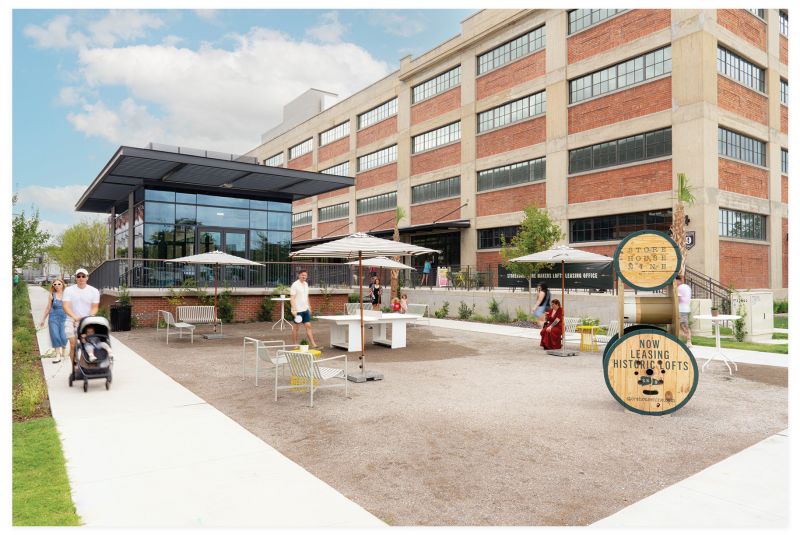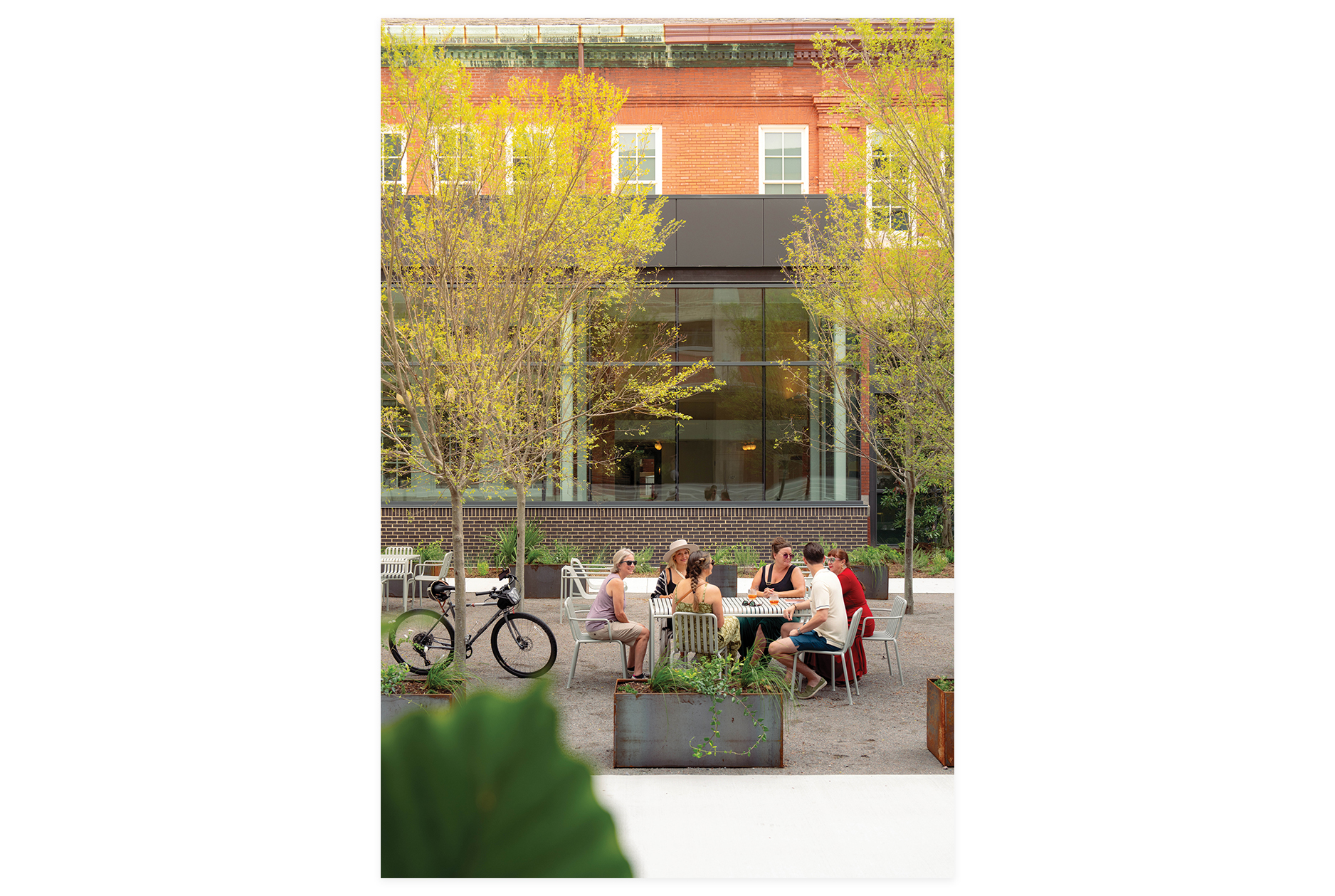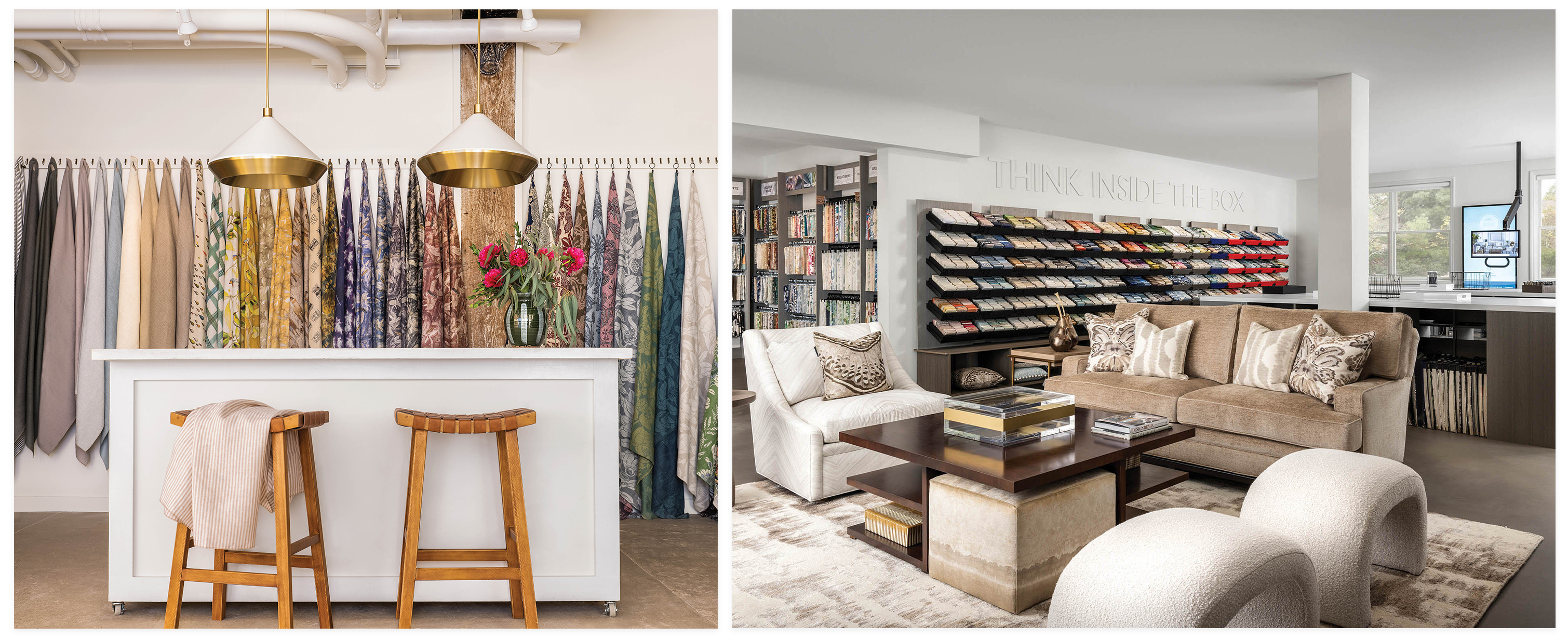The design hub is expected to attract regional customers with a mix of national and local brands

The Charleston Design District will be home to up to 150,000 square feet of showroom spaces, fabrication studios, and restaurants, including national brands and homegrown businesses.
By fall, the former Charleston Naval Base will debut a new chapter, one focused not on shipbuilding, but on home furnishings. The Charleston Design District, spearheaded by Jamestown, an Atlanta-based real estate investment manager in partnership with Weaver Capital Partners and WECCO Development, is transforming a portion of the Navy Yard into a design hub with up to 150,000 square feet of curated showroom space, custom fabrication studios, and dining experiences.
The district will bring together some of the nation’s leading home furnishing brands, including Kravet, Schumacher, and Textures, alongside Charleston staples such as The Urban Electric Co., Fritz Porter, and Smithey Ironware. The goal is to create a dynamic, walkable destination that serves both design professionals and discerning homeowners. “It’s a hub for creativity and collaboration among designers, makers, and artisans…where professionals can interact, innovate, and bring their clients for a one-stop design experience,” says Michael Phillips, president of Jamestown.
Located in Storehouse Row, an enclave of restored, turn-of-the-century warehouses along the Cooper River, the showrooms are intended to be immersive and interconnected. Kravet’s 2,240-square-foot space in Storehouse Eight and Schumacher’s 3,760-square-foot showroom debut this fall. Textures, a Nashville-based luxury flooring brand, is opening this summer in Storehouse Nine. Several local design-forward businesses, including Middleton Made Knives and Kate McDonald Bridal, have opened during the past year.

Programming will also play a key role. Kravet is hosted a pop-up in late June, giving designers a chance to preview new products before the official opening. Navy Yard Charleston and Celadon Warehouse also are cohosting the Boulevard Bazaar, a Sunday market featuring live music, food trucks, local artisans, and family-friendly activities along Noisette Boulevard on September 7 and October 5.
From the outset, the vision for the district has been regional in scale and ambition, serving markets from North Carolina’s Outer Banks to Savannah, Georgia. “Charleston’s strategic location between Florida and the Outer Banks, paired with its rich cultural heritage, makes it an ideal home for this type of destination shopping,” adds Phillips.
While the district is designed with the trade in mind, it doesn’t exclude individual homeowners. “The showrooms primarily cater to professionals, but programming and access points allow homeowners to engage directly with the design process, too,” Phillips explains.

Local textile and furniture collective Fritz Porter (left) and national furnishings company Kravet (right) each have showrooms in the new Charleston Design District, which caters to both trade professionals and homeowners.
That accessibility matters to Dave Dawson, founder of The Urban Electric Co., which has called the Navy Yard home since 2006. “We’re thrilled to finally have kindred companies in the space,” Dawson says. “It’s compelling from a business standpoint but also incredibly meaningful from an amenity perspective. We always wanted our craftsmen to be immersed in a walkable community. It took 20 years, but that dream is finally becoming a reality.” The Urban Electric Co. will continue welcoming trade clients and the public by appointment and is exploring ways to become more accessible as foot traffic increases. “The idea of engaging more visitors and sharing our story firsthand is really exciting,” Dawson adds.
The district builds on a decades-long effort to preserve the site’s industrial roots while embracing a creative future. “Since the Navy Base closure in 1996, the guiding vision has been authentic preservation,” says Elias Deeb, CEO of the Navy Yard Industrial Campus. “This is a place where thoughtful design and heavy industry have long coexisted.”
With rooftop dining from Indigo Road Hospitality and a growing cluster of design-forward businesses, the district is a new way to experience the area’s creative identity.